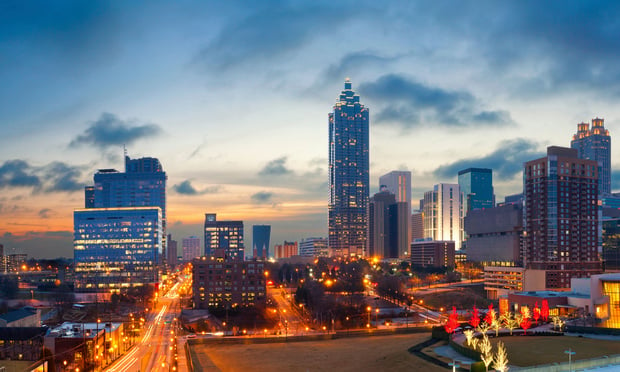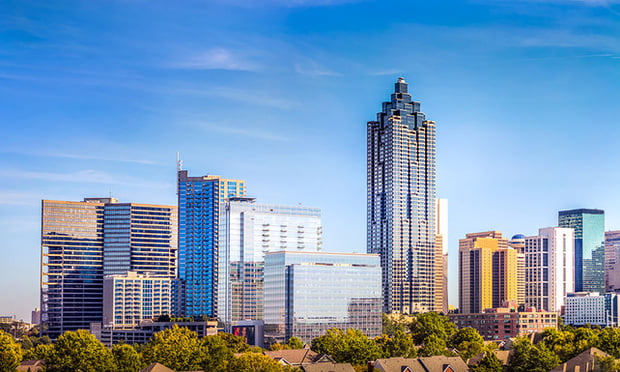ATLANTA—Dual-branded hotels are nothing new, but they are certainly gaining moment. Now, Hilton is pressing toward tri-branded hotels and other innovative ideas.
GlobeSt.com caught up with Bill Duncan, global head of All Suites for Hilton, to discuss innovative building models and more in part two of this exclusive interview. You can still read part one: How Hotels Are Really Impacting Modern Metros.
GlobeSt.com: What are new innovative building models that allow developers to creatively overcome challenges faced in high-barrier-to-entry, urban markets?
Duncan: Hilton's All Suites brands offer flexible and scalable prototypes that make establishing a footprint in an urban market possible. Our prototypes also give owners a variety of design options and additional offerings to allow them to customize their hotels to meet the specific needs of guests traveling to the area.
Our prototypes also allow us to unite two brands under one roof for a dual-branded hotel. We have seen great success with this model, especially with our extended stay brands.
I personally serve on Hilton's multi-brand development taskforce, and one of our duties is to identify projects that may be a fit for a multi-brand hotel. This building model allows owners to maximize limited available land and save on construction, zoning and operational costs, while appealing to a wider variety of travelers.
We have executed this strategy successfully in the Southeast in the past, and are preparing to open a joint Hilton Garden Inn and Homewood Suites in Downtown Birmingham in July 2017. Looking ahead, All Suites has more than 20 dual-brand properties in the pipeline in cities including downtown Raleigh, North Carolina; Miami, Florida; Hattiesburg, Mississippi, and Downtown Nashville, Tennessee.
While we have traditionally pursued a dual-branded model, we recently celebrated the groundbreaking of Hilton's first-ever tri-brand hotel near McCormick Place in Chicago. Consisting of a Hilton Garden Inn, Hampton Inn by Hilton and Home2 Suites by Hilton, we plan to celebrate the hotel's grand opening in late 2018.
Additionally, adaptive reuse continues to be a successful strategy for our All Suites brands to enter urban markets. For example, the building that houses the recently opened Home2 Suites by Hilton Downtown Atlanta was originally built in 1910, and the designers behind the conversion made sure to retain the building's historic architecture, beautiful terrazzo flooring and marble stairs.
GlobeSt.com: What is the expansion strategy for All Suites through 2017 and beyond?
Duncan: Hilton's All Suites brands are on-pace to have a combined 800 open hotels by Q2 2017, and show no signs of slowing down. The three brands have already opened 20 properties in 2017 to-date, with another 114 hotels slated to open before the end of the year. We are growing in all markets from urban locations to secondary and tertiary markets, including “surban” locations.
The Southeast will continue to be an area of significant growth for us as well, especially given that many of the major cities in the region are also feeder markets for international travelers from Latin America, where we are amid a dedicated push for expansion. We recently announced the signing of Hilton's first dual-branded hotel in Mexico, which will feature a Hilton Garden Inn and Homewood Suites in the city of Saltillo.
However, our international growth is not limited to just Latin America. All three All Suites brands have a healthy and growing footprint in Canada, and Embassy Suites has upcoming hotels in Saudi Arabia and China.
ATLANTA—Dual-branded hotels are nothing new, but they are certainly gaining moment. Now, Hilton is pressing toward tri-branded hotels and other innovative ideas.
GlobeSt.com caught up with Bill Duncan, global head of All Suites for Hilton, to discuss innovative building models and more in part two of this exclusive interview. You can still read part one: How Hotels Are Really Impacting Modern Metros.
GlobeSt.com: What are new innovative building models that allow developers to creatively overcome challenges faced in high-barrier-to-entry, urban markets?
Duncan: Hilton's All Suites brands offer flexible and scalable prototypes that make establishing a footprint in an urban market possible. Our prototypes also give owners a variety of design options and additional offerings to allow them to customize their hotels to meet the specific needs of guests traveling to the area.
Our prototypes also allow us to unite two brands under one roof for a dual-branded hotel. We have seen great success with this model, especially with our extended stay brands.
I personally serve on Hilton's multi-brand development taskforce, and one of our duties is to identify projects that may be a fit for a multi-brand hotel. This building model allows owners to maximize limited available land and save on construction, zoning and operational costs, while appealing to a wider variety of travelers.
We have executed this strategy successfully in the Southeast in the past, and are preparing to open a joint
While we have traditionally pursued a dual-branded model, we recently celebrated the groundbreaking of Hilton's first-ever tri-brand hotel near McCormick Place in Chicago. Consisting of a
Additionally, adaptive reuse continues to be a successful strategy for our All Suites brands to enter urban markets. For example, the building that houses the recently opened Home2 Suites by Hilton Downtown Atlanta was originally built in 1910, and the designers behind the conversion made sure to retain the building's historic architecture, beautiful terrazzo flooring and marble stairs.
GlobeSt.com: What is the expansion strategy for All Suites through 2017 and beyond?
Duncan: Hilton's All Suites brands are on-pace to have a combined 800 open hotels by Q2 2017, and show no signs of slowing down. The three brands have already opened 20 properties in 2017 to-date, with another 114 hotels slated to open before the end of the year. We are growing in all markets from urban locations to secondary and tertiary markets, including “surban” locations.
The Southeast will continue to be an area of significant growth for us as well, especially given that many of the major cities in the region are also feeder markets for international travelers from Latin America, where we are amid a dedicated push for expansion. We recently announced the signing of Hilton's first dual-branded hotel in Mexico, which will feature a
However, our international growth is not limited to just Latin America. All three All Suites brands have a healthy and growing footprint in Canada, and Embassy Suites has upcoming hotels in Saudi Arabia and China.
Want to continue reading?
Become a Free ALM Digital Reader.
Once you are an ALM Digital Member, you’ll receive:
- Breaking commercial real estate news and analysis, on-site and via our newsletters and custom alerts
- Educational webcasts, white papers, and ebooks from industry thought leaders
- Critical coverage of the property casualty insurance and financial advisory markets on our other ALM sites, PropertyCasualty360 and ThinkAdvisor
Already have an account? Sign In Now
*May exclude premium content© 2024 ALM Global, LLC, All Rights Reserved. Request academic re-use from www.copyright.com. All other uses, submit a request to [email protected]. For more information visit Asset & Logo Licensing.






